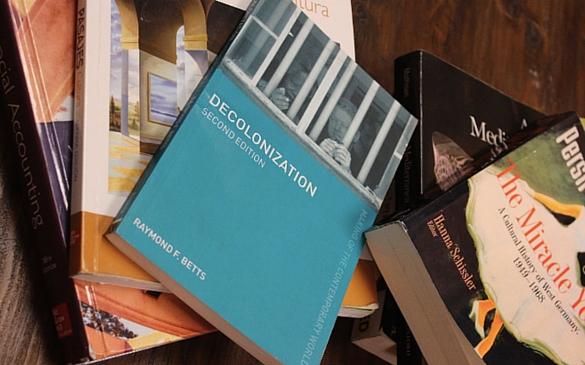After midterms, most students start to feel the pressure build to prepare for the final stretch of the semester. The study habits that they use during this time can damage a final grade, salvage a suffering one or help a high grade flourish. Dr. Carol Wilson, professor of English, is always prepared to help students who come to her office with study questions.
“General rules are pretty straightforward- the first is review the whole test to know what’s being expected of you,” says Wilson. “Review the whole thing and check to see where your points are because you don’t want to spend 80 percent of your time on something that’s only 20 percent of your grade.”
Students who are not doing as well in a class as they would like still have hope- and a few more weeks to pull off a good grade. Reviewing midterms to understand what went wrong is key to repairing an average.
“Look at the instructor’s comments and ask ‘What do I understand about the feedback I’ve gotten?’ Often students will say, ‘I understand that I didn’t do whatever,’ but the question they don’t ask is, ‘If I had said this would that have been better?’ You can’t ask a professor to regrade a whole test, but, for example, the student can say, ‘I see where I was too general here, would this have been better?’”
Haven’t discovered the best method of studying for a class yet? Wilson says that active learning is a great way for any student to retain information.
“Active learning or active engagement, whether it’s through discussion, through writing things down, through taking it and making study questions or through talking with someone in a group– active learning strategies go across your whole lifetime.”
All Wofford students must take humanities based classes- English, philosophy, or even humanities itself- at least once during their Wofford career to fulfill general education requirements. For some, writing papers comes easily; for others, a blank blue book causes a great deal of stress. Final exam essays require much more prior planning than some students think.
“Take a little bit of time to plan your answer. If it is an essay, plan out your thesis, your argument, everything even if it’s just two minutes to plan it and to jot it down. In an in-class test, you really can’t write in three different colors- my students do on papers at times, especially drafting- but label your argument, evidence and explanation quietly with a pencil. Give yourself two or three minutes to go through and make sure you have the three parts, and that goes back to reviewing your test ahead of time. If you’ve gotten a paper back, and it says you didn’t explain enough, chances are you’re not going to explain enough on the in-class exam. Ask yourself, ‘how does this matter?’ And that you can practice.”
Any student who is struggling with preparing for exams can schedule an appointment with Wilson. For help that is specific to a class, professors and peer tutors are available in most cases, or for help with learning strategies and man aging stress, Perry Henson and Kelly Buckner in the Wellness Center welcome students.





























